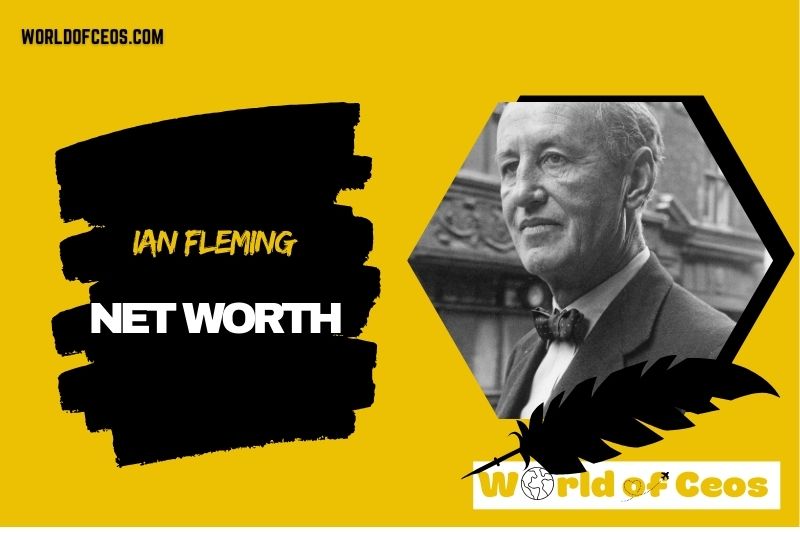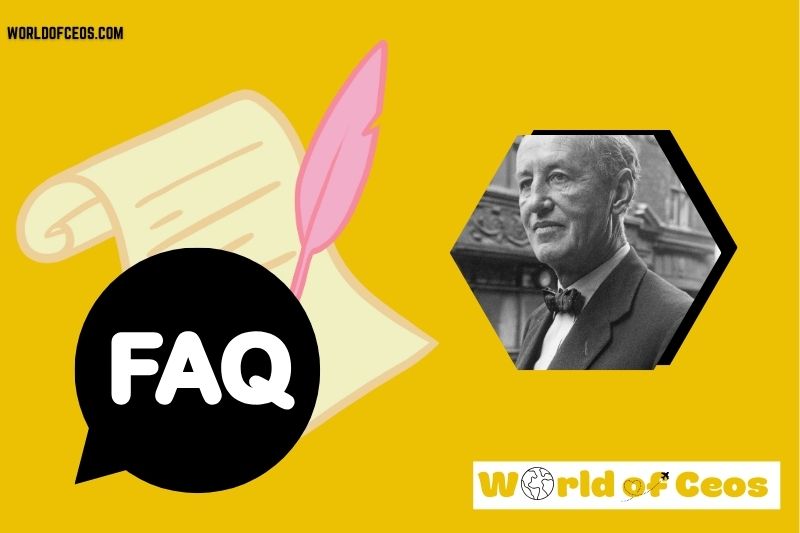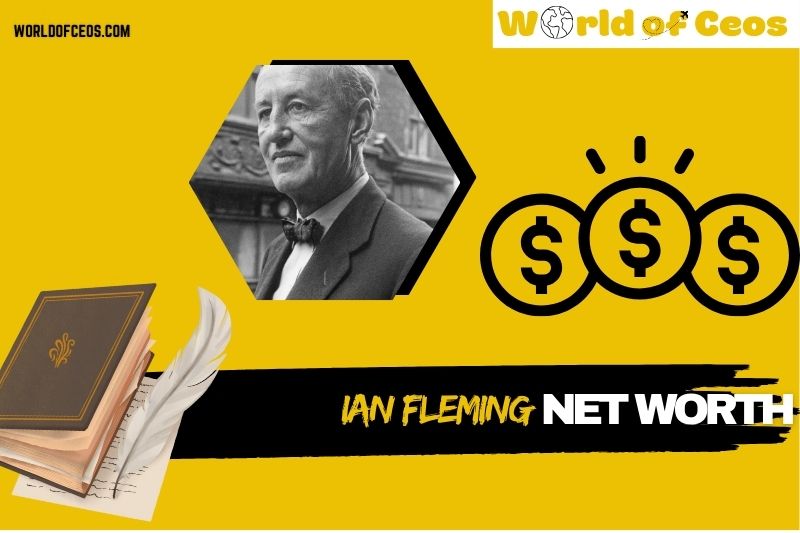Ian Fleming, the celebrated creator of James Bond, is more than just a literary icon.
His captivating stories of espionage and adventure brought him immense fame and financial success, making him one of the most intriguing figures in the realm of literary wealth.
Delving into Ian Fleming net worth and the financial highlights of his illustrious career reveals a life as fascinating as his fictional hero.
Let’s explore the milestones and ventures that contributed to his enduring legacy.
Quick Facts
| FACT | DETAIL |
|---|---|
| Real Name | Ian Lancaster Fleming |
| Popular Name | Ian Fleming |
| Gender | Male |
| Birth Date | May 28, 1908 |
| Age | 56 (Died: August 12, 1964) |
| Parents | Valentine Fleming, Evelyn Fleming |
| Siblings | Peter, Michael, Richard, Amaryllis |
| Birthplace | London, England |
| Nationality | British |
| Ethnicity | English, Scottish ancestry |
| Education | Eton College, Sandhurst, University of Geneva, University of Munich |
| Marital Status | Married |
| Spouse | Ann Charteris |
| Children | Caspar Fleming |
| Dating | N/A |
| Net Worth | $100 million (adjusted for inflation) |
| Source of Wealth | Author, Naval Intelligence Officer |
| Height | 6 ft (1.83 m) |
What is the Net Worth of Ian Fleming in 2024?

Ian Fleming’s estimated net worth, adjusted for inflation, stood at $100 million at the time of his passing in 1964.
This figure places him among the wealthiest authors of his era, thanks to the phenomenal success of his James Bond novels and their cinematic adaptations.
Comparatively, Fleming’s wealth aligns with modern literary giants and entertainers who have similarly turned their creative works into lasting empires.
Other notable individuals related to Fleming include:
- Sean Connery
- Daniel Craig
- Ann Charteris
- Chris Blackwell
- Bob Marley
- Anthony Eden
- Noël Coward
- Blanche Blackwell
- Peter Fleming
- Winston Churchill
For insights on how Ian Fleming compares to the most successful authors, check out this list of wealthy authors.
Ian Fleming Salary and Finance Overview

Early Life and Influences That Shaped His Career
Ian Fleming’s journey began in London, England, where he was born into a wealthy family connected to the prestigious Robert Fleming & Co.
His father’s tragic death during World War I left an indelible mark on him. Educated at elite institutions like Eton and Sandhurst, Fleming’s formative years were filled with privilege but also challenges.
Despite his family’s wealth, Fleming’s early career saw struggles as he sought to find his niche, from working as a journalist at Reuters to dabbling in finance before joining the Naval Intelligence Division.
These experiences profoundly influenced his later financial successes.
Naval Intelligence Career and Its Financial Impact
Fleming’s career during World War II as a naval intelligence officer shaped not only his writing but also his professional reputation.
He was pivotal in planning operations like Goldeneye and overseeing units such as the 30 Assault Unit and T-Force.
These contributions enhanced his stature, indirectly boosting the commercial appeal of his books by lending them authenticity and intrigue.
The Creation of His Iconic Work and Its Legacy
The launch of Casino Royale in 1953 was a turning point. With its unprecedented success, Fleming published eleven more Bond novels, solidifying his financial empire.
The James Bond series, with its unique mix of espionage and glamour, remains among the best-selling books of all time, amassing over 100 million copies sold.
Transformative Role of Goldeneye in His Creative Process
Goldeneye, his Jamaican estate, was more than a retreat—it was the birthplace of his literary masterpieces.
This serene haven provided the creative solitude Fleming needed, while its connection to his novels added to its historical and financial value.
Impact of Film Adaptations on His Financial Success
The transition of Bond from page to screen marked another financial milestone.
The films’ global success, starting with Sean Connery’s portrayal of 007, turned the franchise into a multi-billion-dollar phenomenon, solidifying Fleming’s enduring legacy.
Posthumous Influence and Continued Revenue Streams
Even after his death, Fleming’s estate continues to thrive.
Posthumous publications, royalties from books and films, and the commercialization of Goldeneye as a luxury resort contribute to his financial legacy, ensuring his wealth remains impactful decades later.
FAQs about Ian Fleming

How did Ian Fleming’s career in Naval Intelligence influence his novels?
His experiences provided the backdrop for the realism and strategic depth seen in the James Bond series.
Where did Ian Fleming write his James Bond novels?
Fleming wrote his novels at Goldeneye, his estate in Jamaica.
Who was Ian Fleming’s spouse?
He was married to Ann Charteris, who shared his glamorous and tumultuous lifestyle.
How many James Bond books did he write?
Ian Fleming authored twelve novels and two collections of short stories in the James Bond series.
Did he have any children?
Yes, he had one son, Caspar Fleming.
What was the inspiration behind the name “James Bond”?
Fleming named his character after an American ornithologist, finding the name fittingly simple yet strong.
Was he involved in film adaptations of his novels?
While Fleming did not direct films, his works inspired the first Bond movies, shaping the franchise’s direction.
What is the historical significance of Goldeneye?
Goldeneye is where Fleming wrote his books and where elements of Bond’s adventures originated.
How did Ian Fleming die?
He passed away from heart disease in 1964 after years of heavy smoking and drinking.
What role did Sean Connery play in Fleming’s legacy?
Connery’s portrayal of James Bond brought Fleming’s character to life, expanding his cultural and financial legacy.
Conclusion
Ian Fleming’s legacy extends beyond his literary genius to encompass a financial empire built on storytelling, authenticity, and innovation.
At worldofceos.com, we aim to delve deeper into such fascinating stories. Explore more at worldofceos.com. Let us know your thoughts in the comments below!

